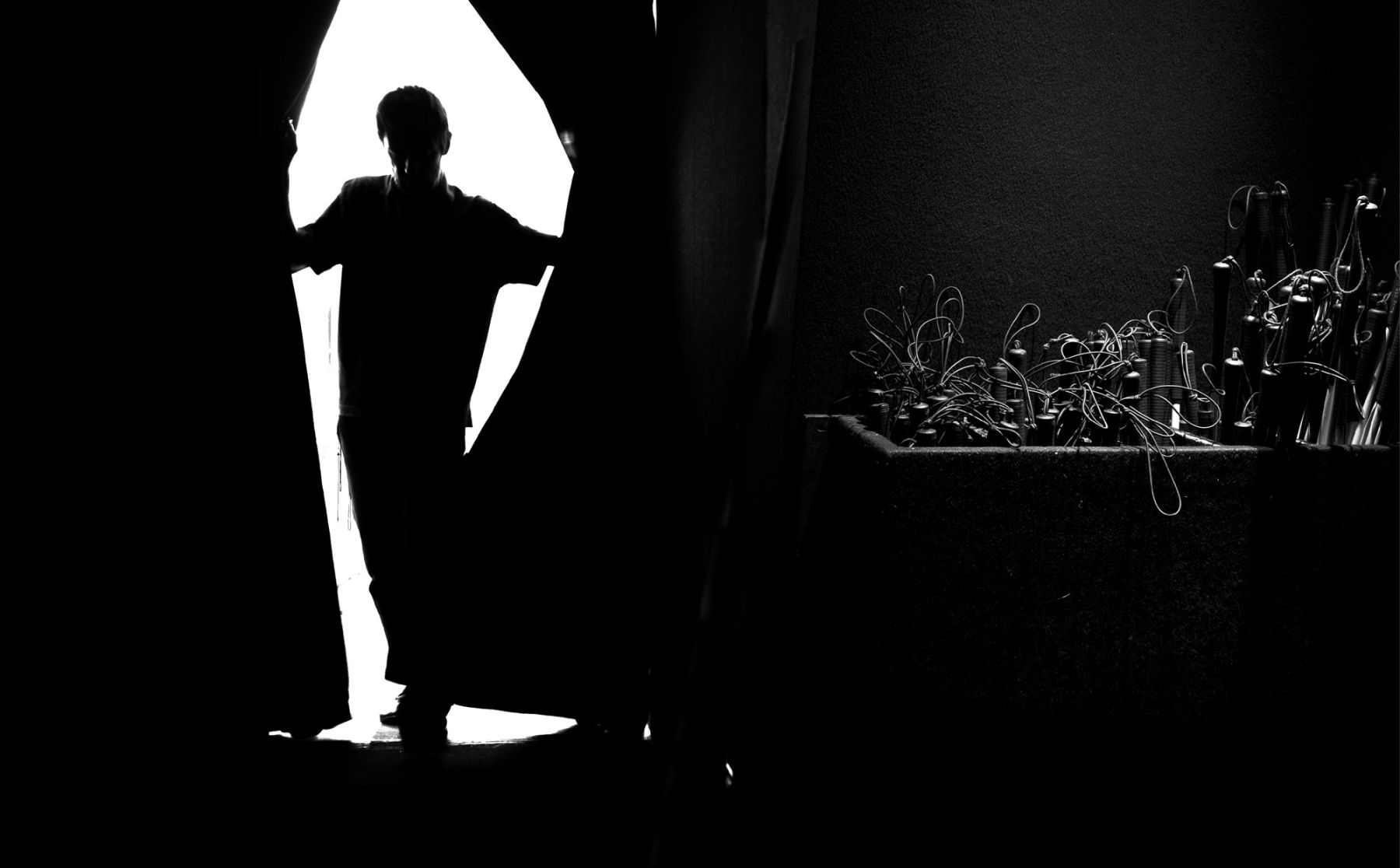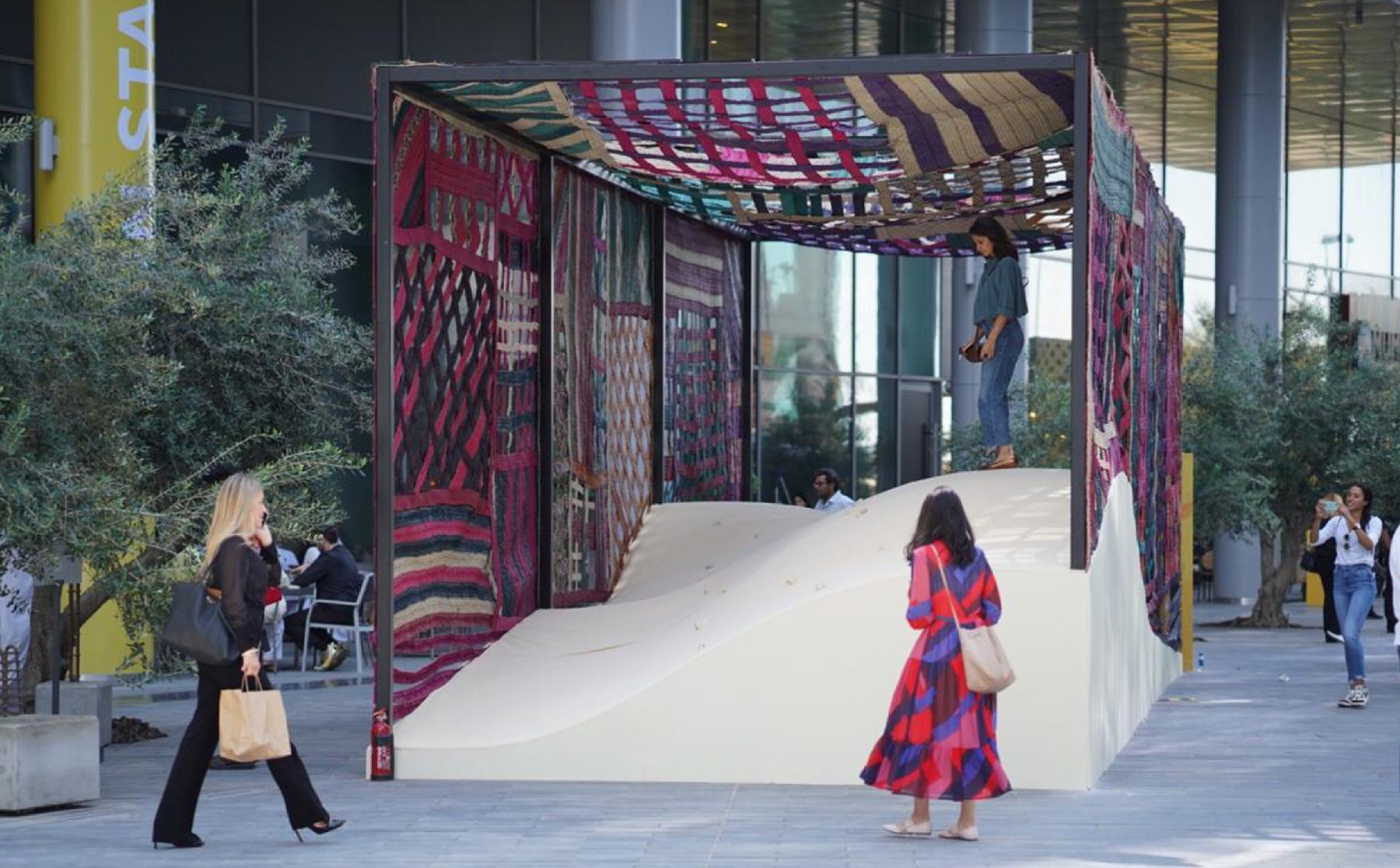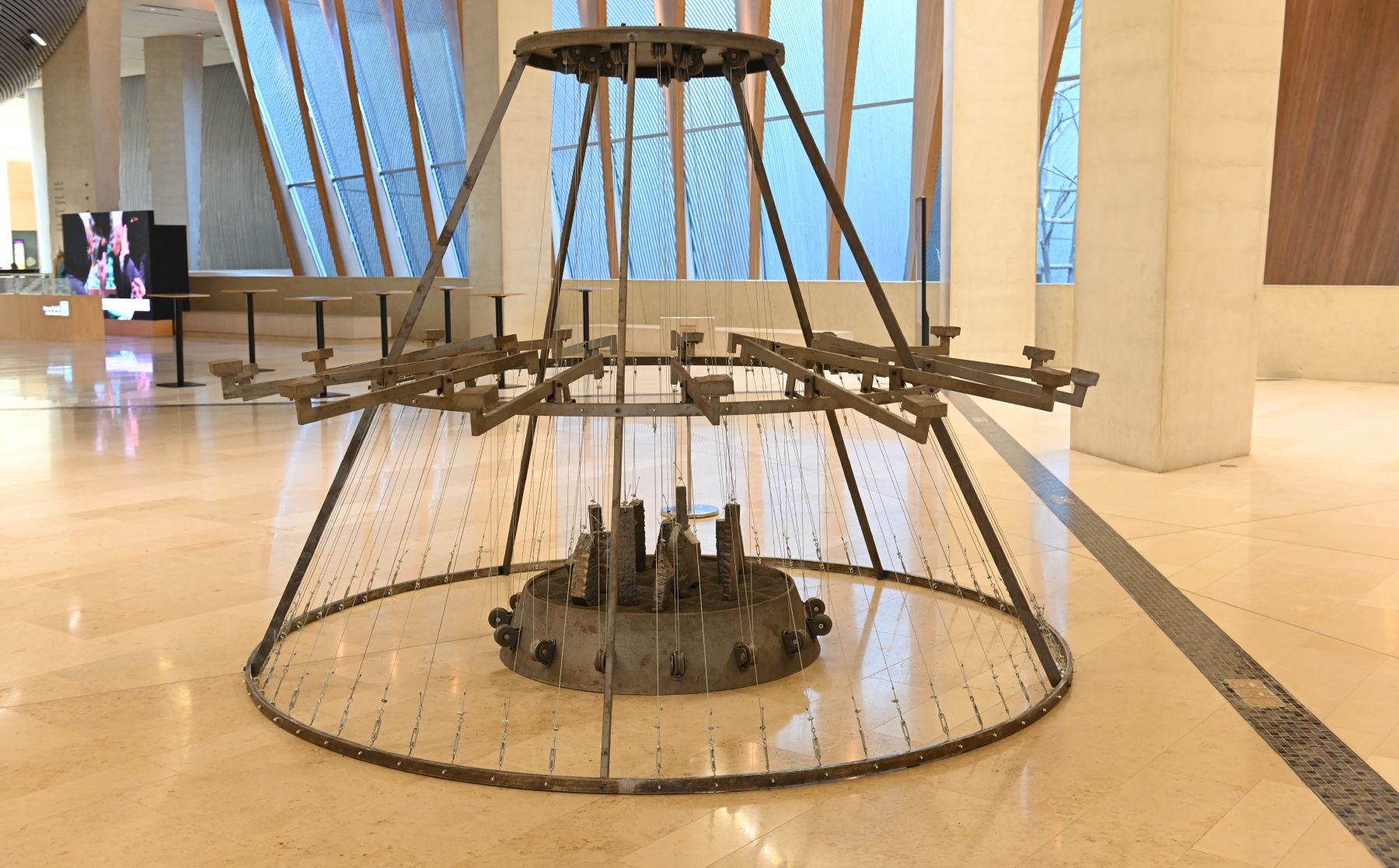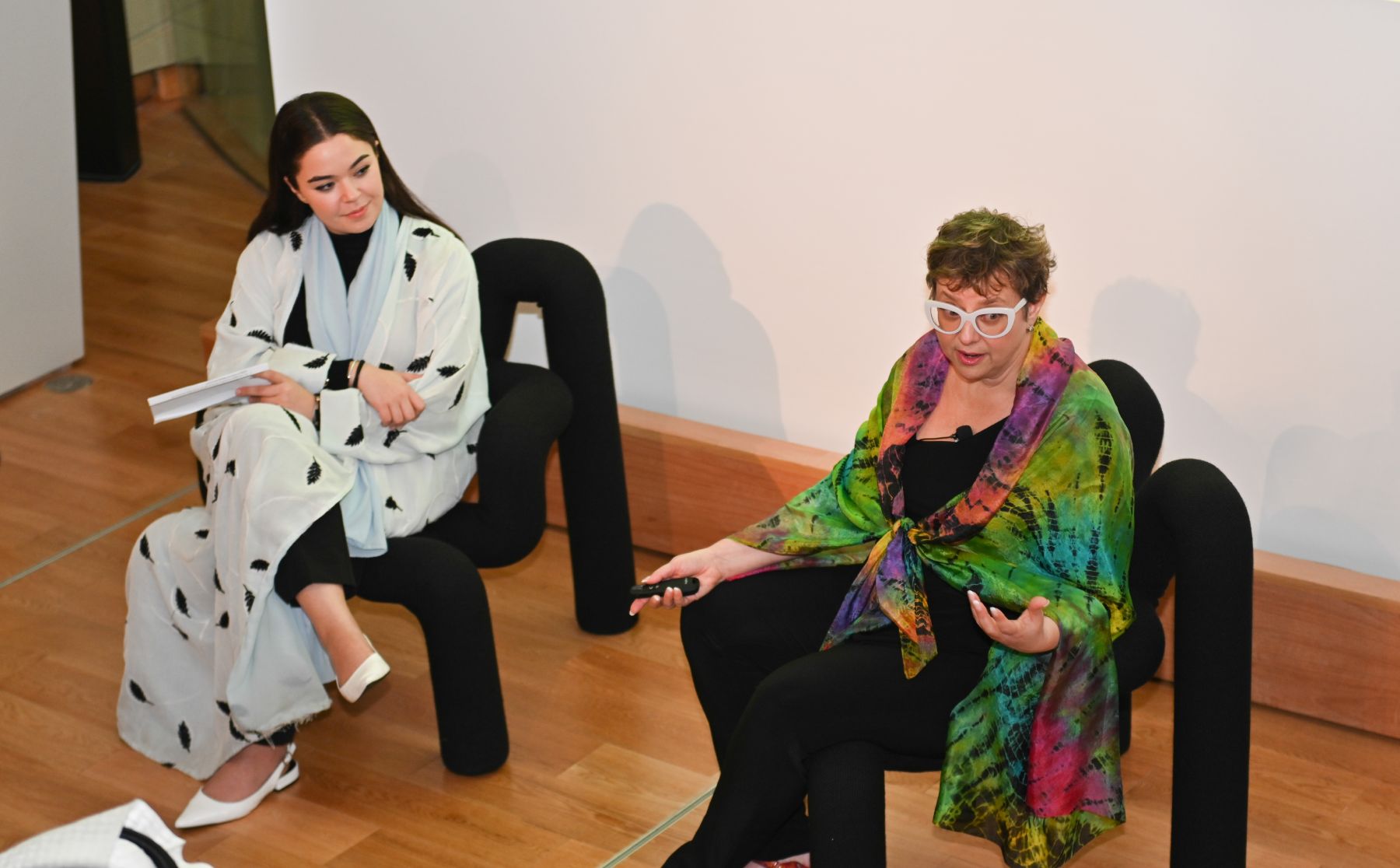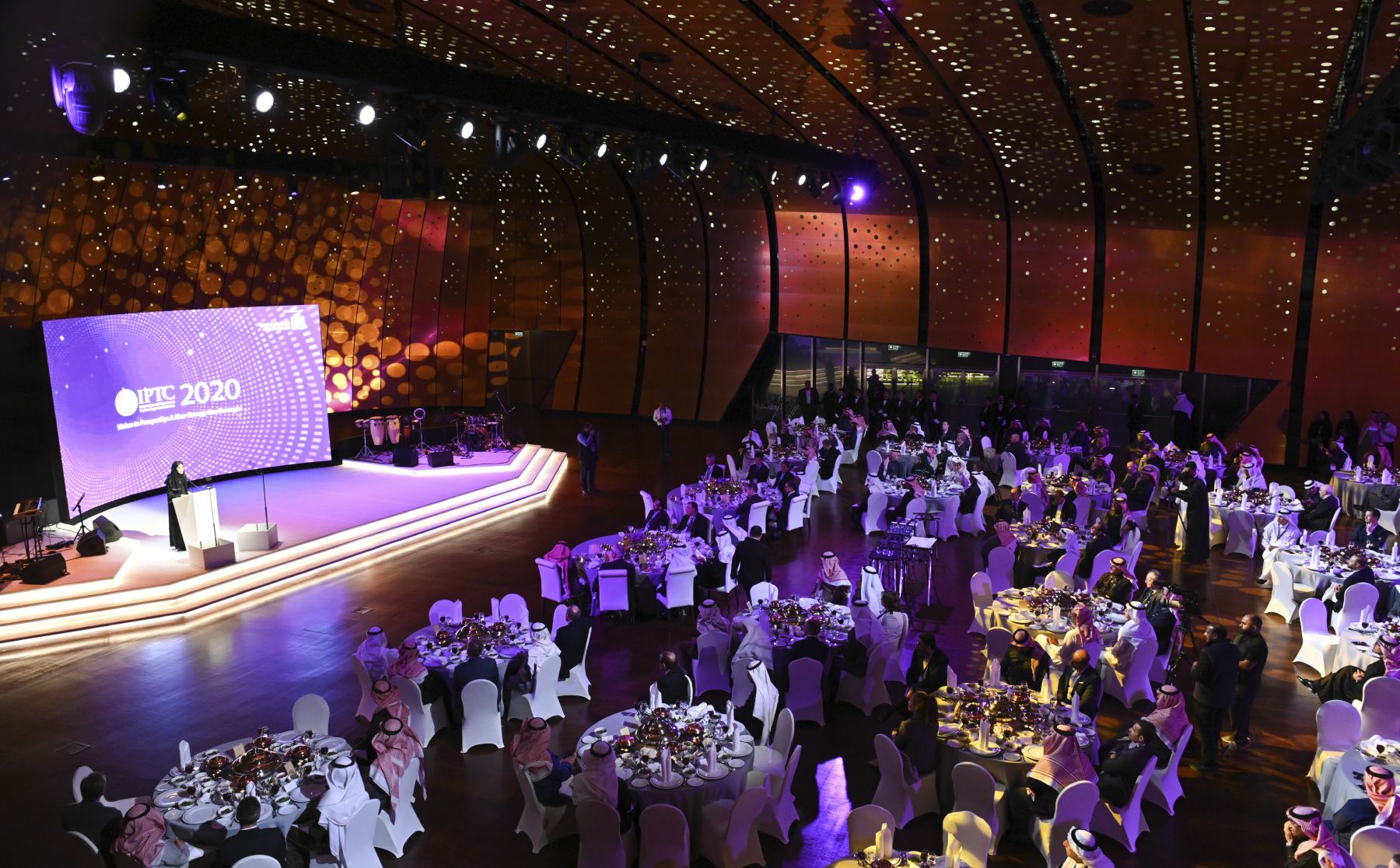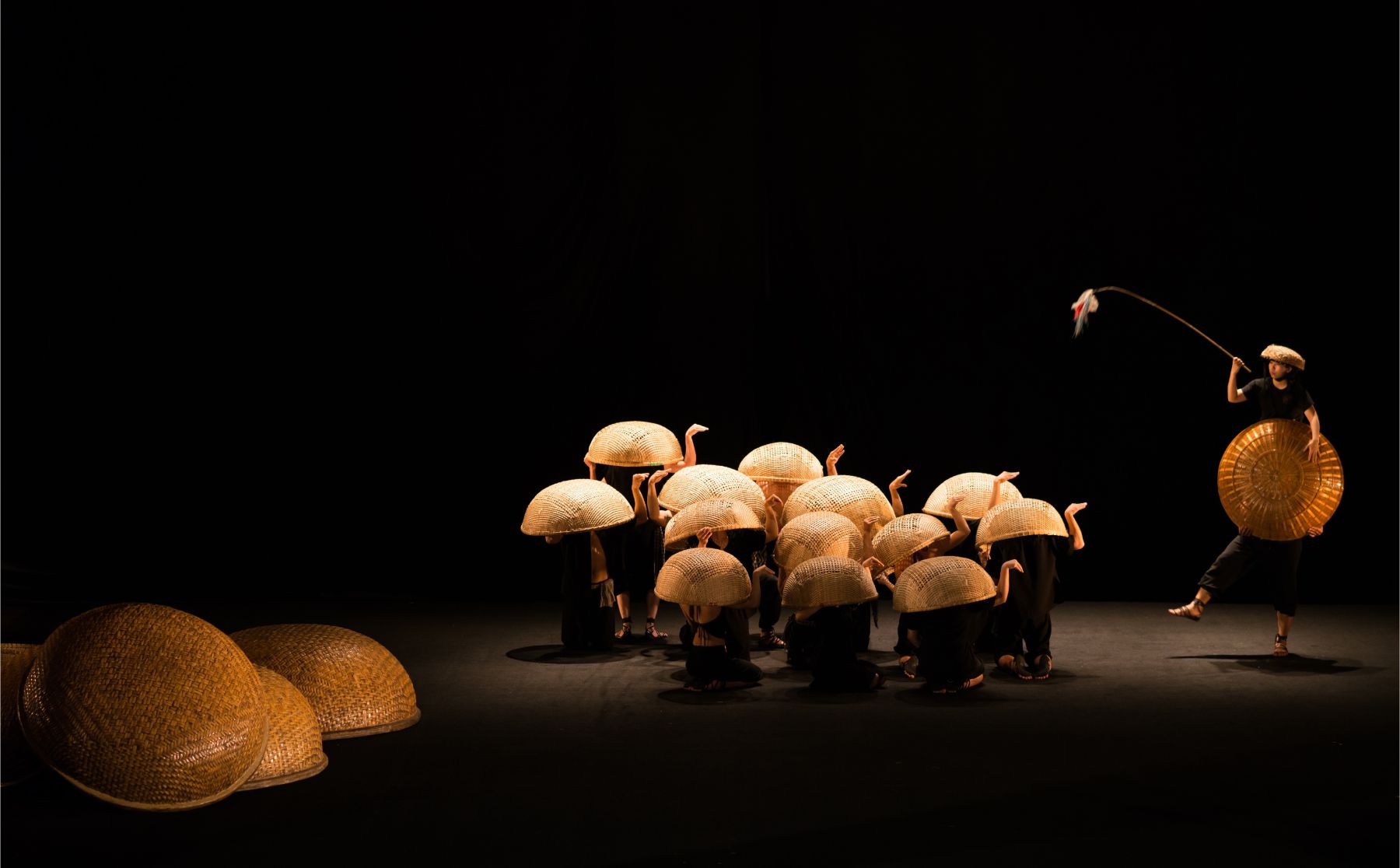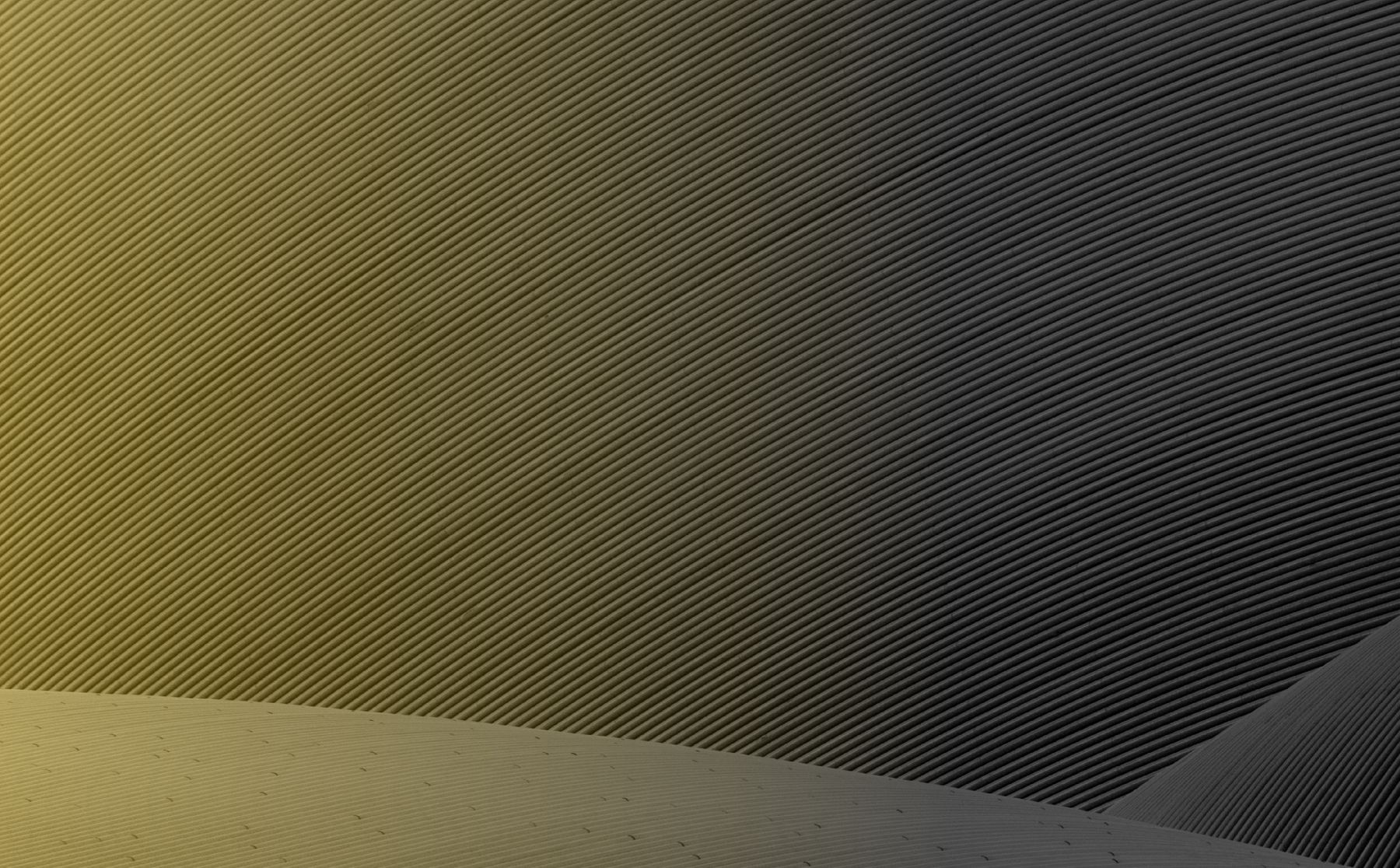We are closed and will open at 09:00 pm
By: Zahra Shikara, Ithra
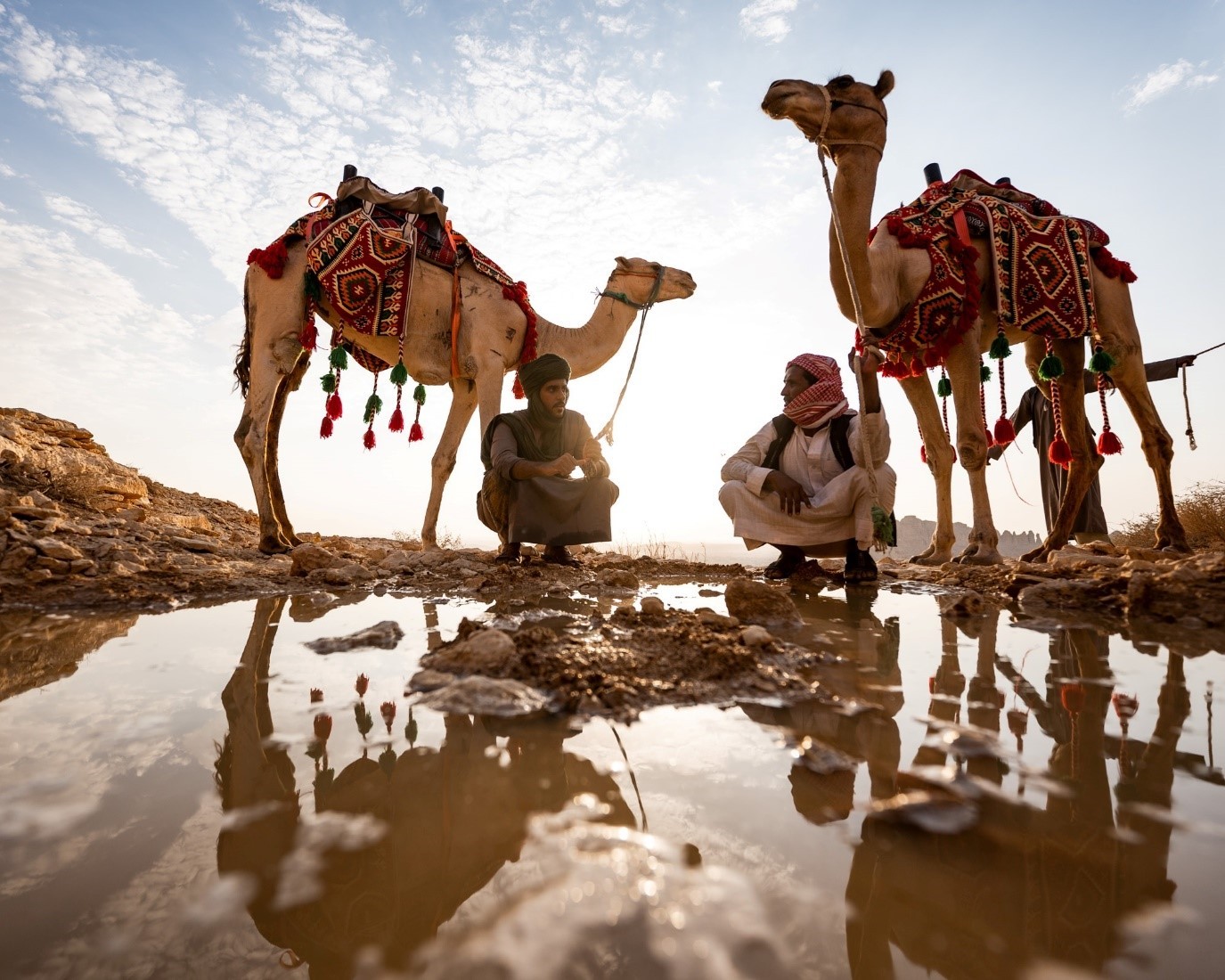
Camel and herder, Hadi Al Eis, Ithra Documentary
In the harsh desert environment, camels are a crucial component of survival and as a result, the relationship that exists between man and camel is a unique one. They are not just pets, they are companions, beasts of burden, transport, a source of food and drink, even a source of prestige. The documentary “Hadi Aleis” produced by Ithra, follows the traditional life of camel herders and camel drivers who lead camels across the desert terrain.
“Camels help us endure the heat, the cold, long distances, hunger and thirst” says Abdullah bin Ateeq Al Duyufi, camel owner and herder in Bajda, Saudi Arabia. “They can even withstand our terrain. Imagine you’re traveling a thousand miles. They are your transportation, your nourishment and your refreshment. The difference between travelling with camels and other animals is huge. If you travel with a horse, you have to take care of it. But the camel takes care of you. Our ancestors said their prayers and depended on the camel – that was their way of life.”
Camels have the ability to form strong bonds with humans. They form a strong connection with the people they see regularly and interact with and even develop friendships. These
friendships grow into important relationships, according to the Bedouins, based on kindness, generosity and trust. They say the camel responds to human emotions; if you’re sad, it shares your sadness. This provides a sense of comfort and companionship in what can be a very harsh and inhospitable environment.
“To me, the camel is part of my family,” says Ibrahim Al Duhaiman, camel herder from Al Qulaib. “If you come close, she hugs you. If she could hug me properly, she would, but she can’t. So, she rubs her neck against me instead. If you’re late and she hears your car approaching, she will run to higher ground to see which way you’re coming from. She even recognizes your smell. We love them as much as we love our own children – in some cases more.”
Regardless of the strong bonds and affection, camels are known to be very stubborn and difficult to control. They are also known to love music and singing, especially the sound of a human voice. Bedouins have been known to sing to camels to encourage them to do certain activities. A skilled singing hadi, or camel driver, can make camels get up, move faster, drink water or eat with their songs. Over time, these ahazeej songs became a daily tradition and way of life for camel herders. According to fourteenth-century historian Ibn Khaldun, there were teachers in Egypt who specialized in teaching alhida, the camel driver's chant.
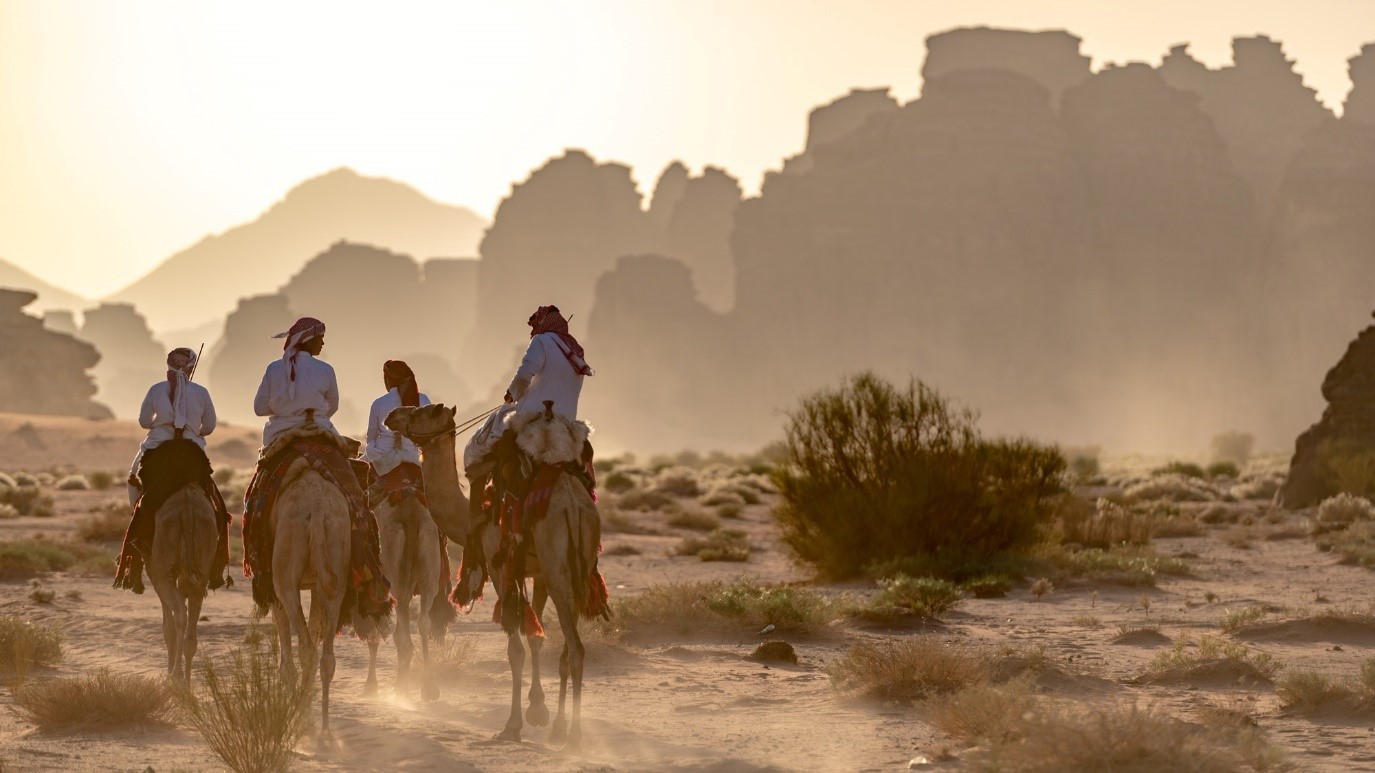
Group of camels, Hadi Al Eis, Ithra Documentary
“Hadi Aleis is the camel’s favorite singer,” explains Ibrahim. “The word hadi means singer and aleis means camels. He is a motivational singer, and the camels interact with his songs. Camels walk very slowly at first, but the minute you sing to them, they speed up and walk farther, faster and with lighter steps and can carry heavier loads. Camel caravans need someone to sing to them to guide them on their way. Each camel has its own special qualities and name. The camel driver calls her when it's time to leave, so she knows who the leader is and who to follow. Hadi Aleis is the man at the front who is able to communicate with camels through songs that will entertain, enrapture and delight them. The nicer the voice, the more the camels like it – and they don’t need instruments! Through song the camel is able to enjoy herself while bringing water for you from the well. She savours eating, drinking, and other activities. Just like we find pleasure in things, she finds pleasure in our melodies and our voices, in the ahazeej songs.”
In medieval Persian poetry, lovers were often compared to camels who patiently carry heavy loads and respond eagerly to their master's voice or flute. In Arabic literature and poetry, the traits of camels have long been immortalized and praised, with the most acclaimed poets beginning their odes with dedications to the camel and the bravery of their riders. The documentary film produced by Ithra “Hadi Aleis” is all about the camel driver and his intimate relationship with the camel. To learn more about camels, and to appreciate how different artists have portrayed them in the visual arts, visit Ithra’s new exhibition The Camel through the Ages as part of the Saudi Year of the Camel. The exhibit is showing in Gallery 2 from August 12 to November 30, 2024.


